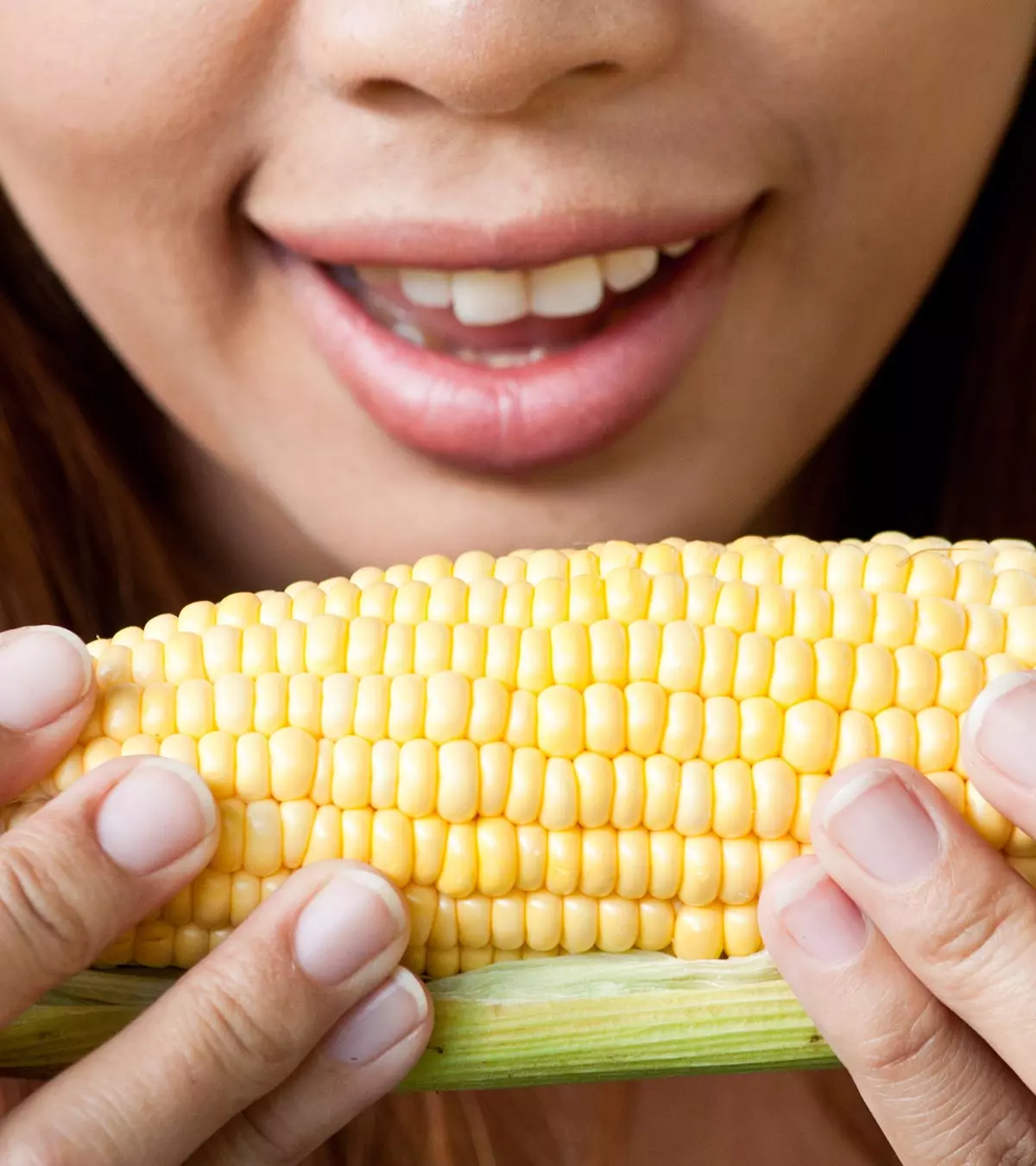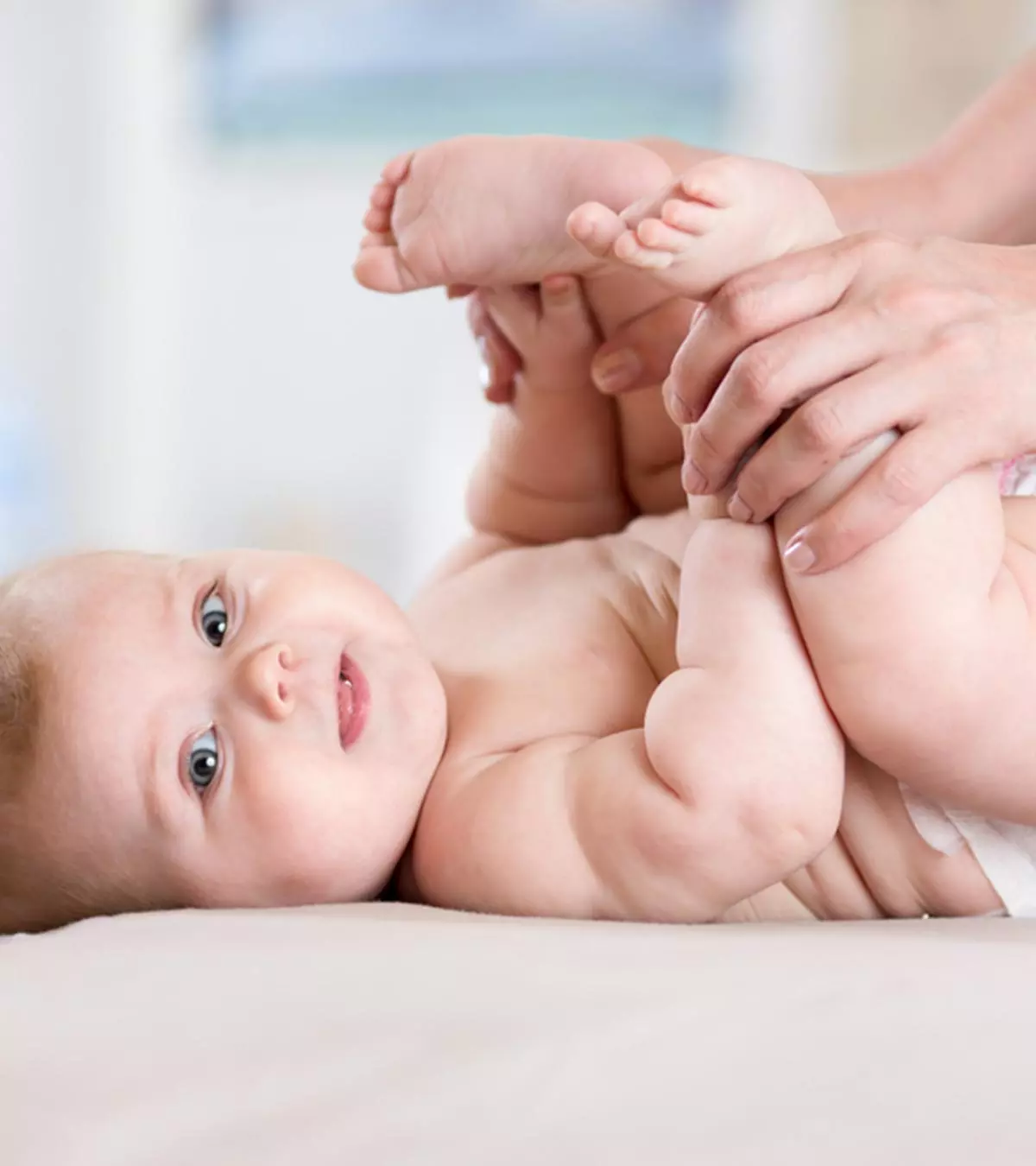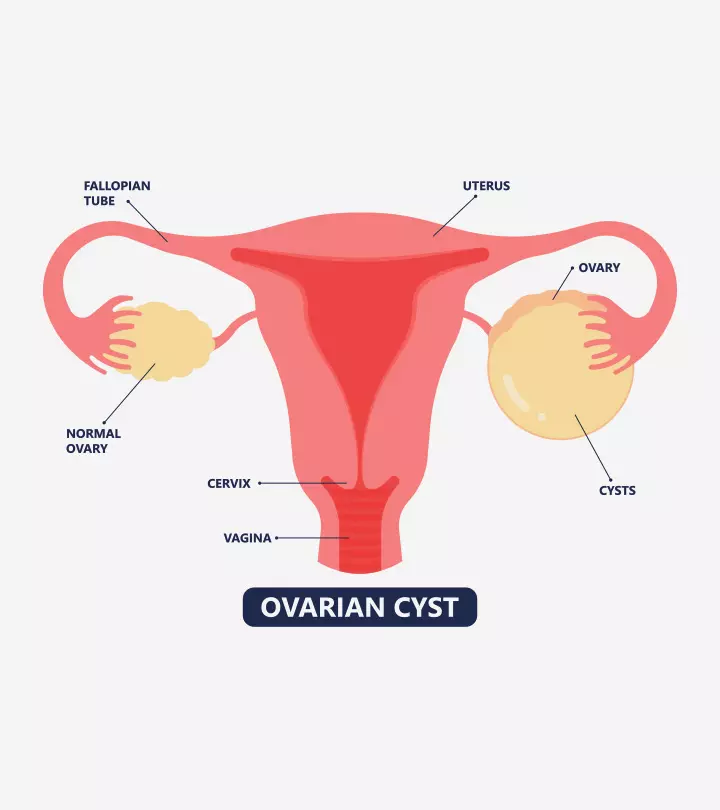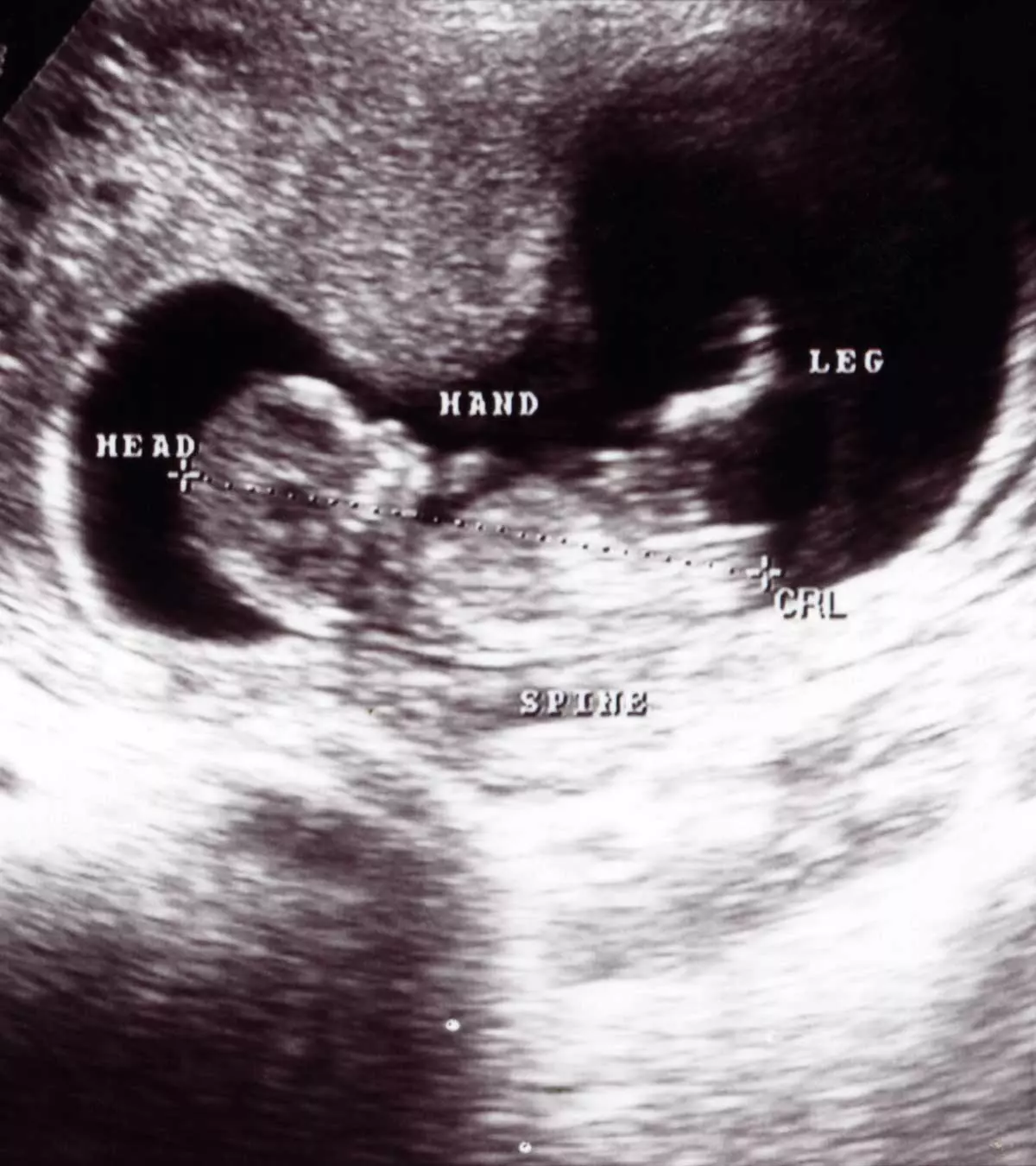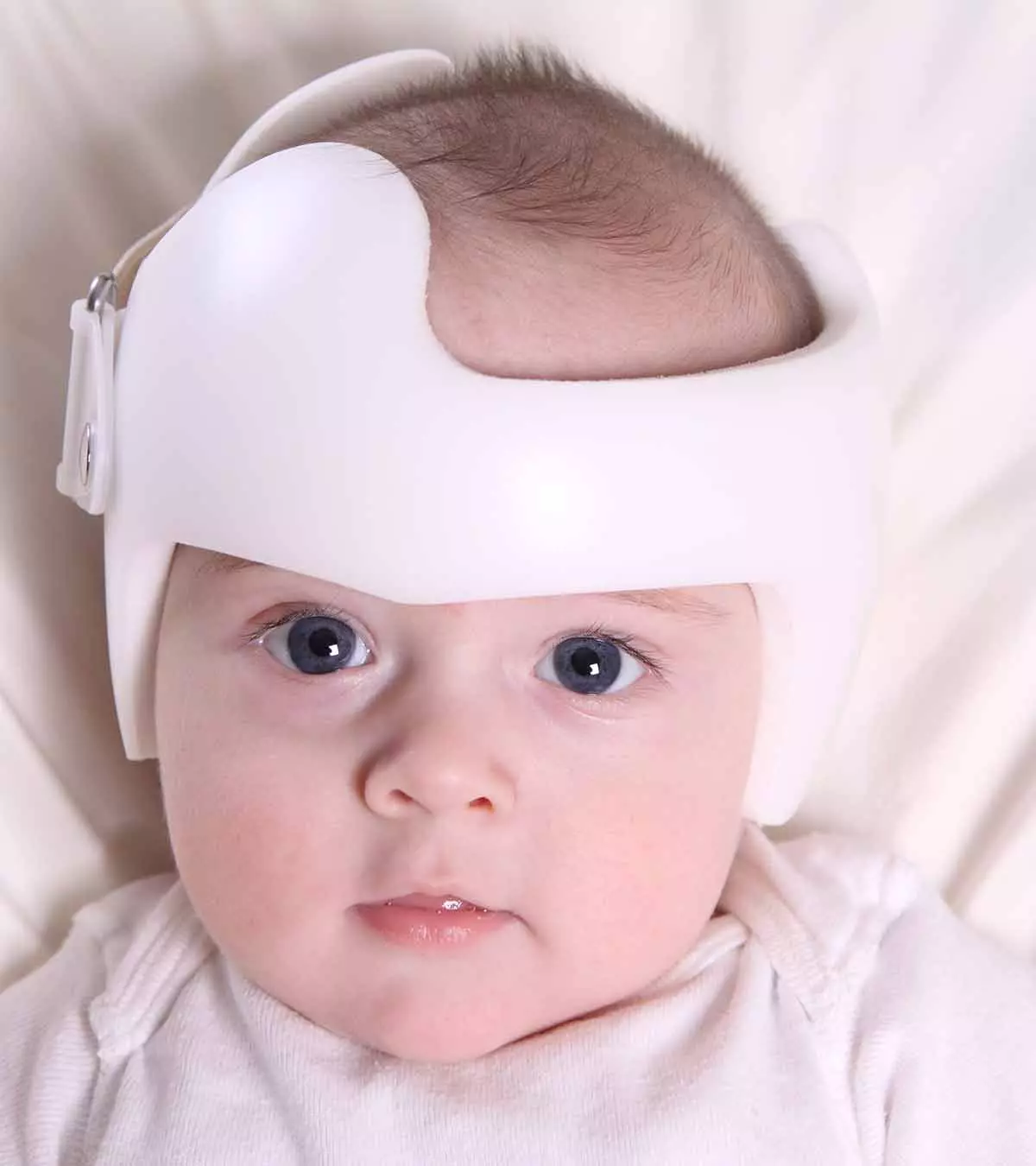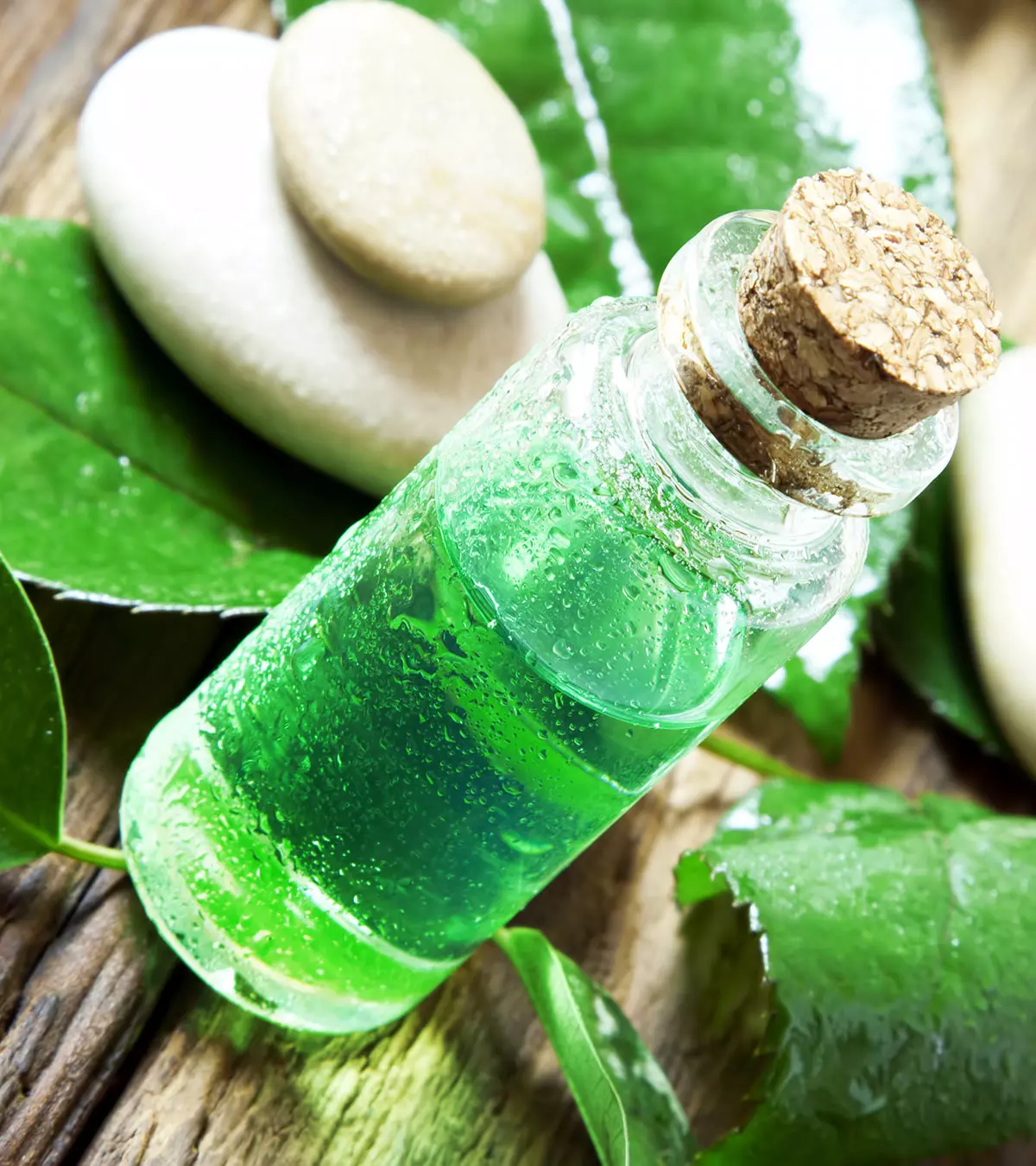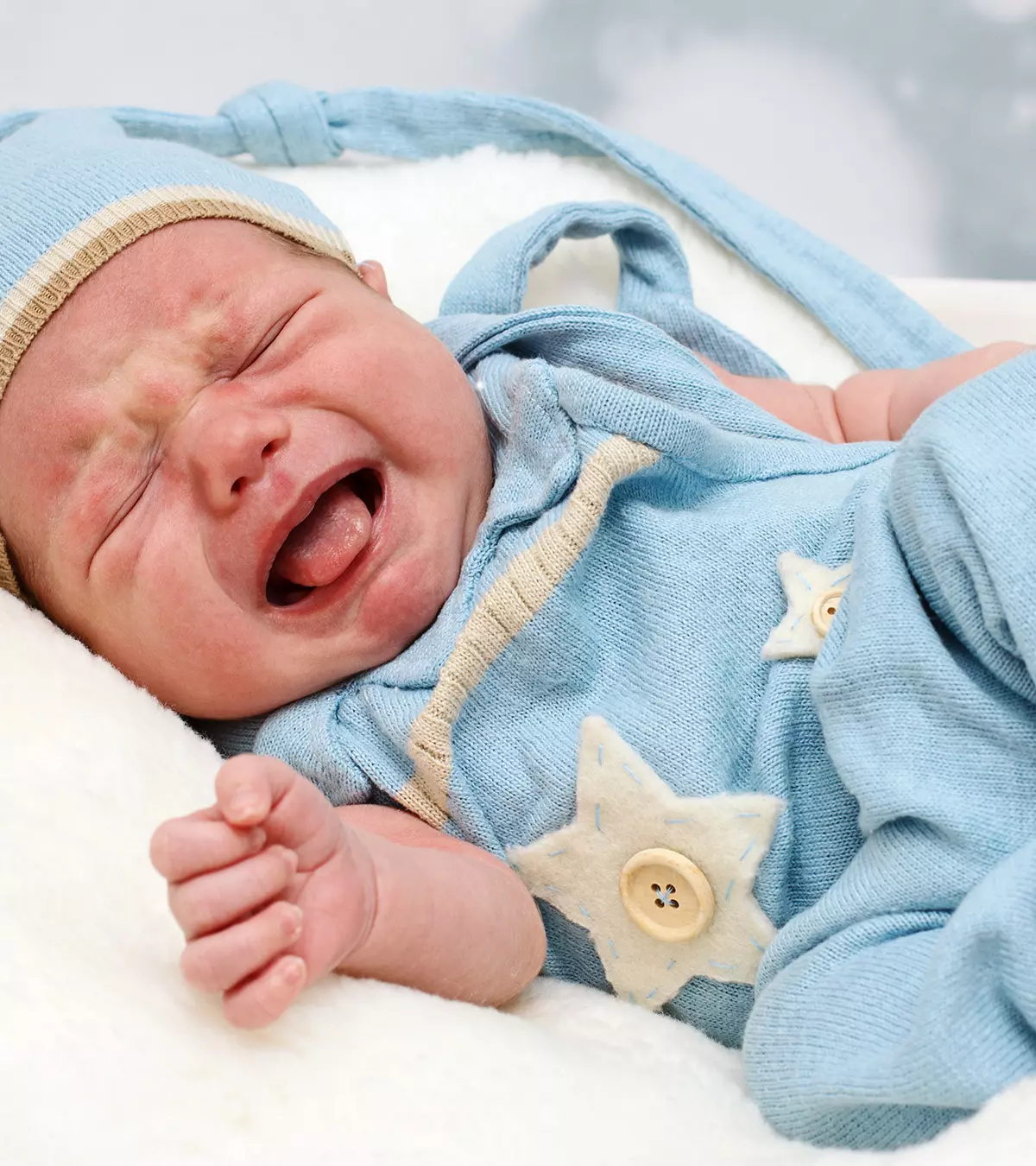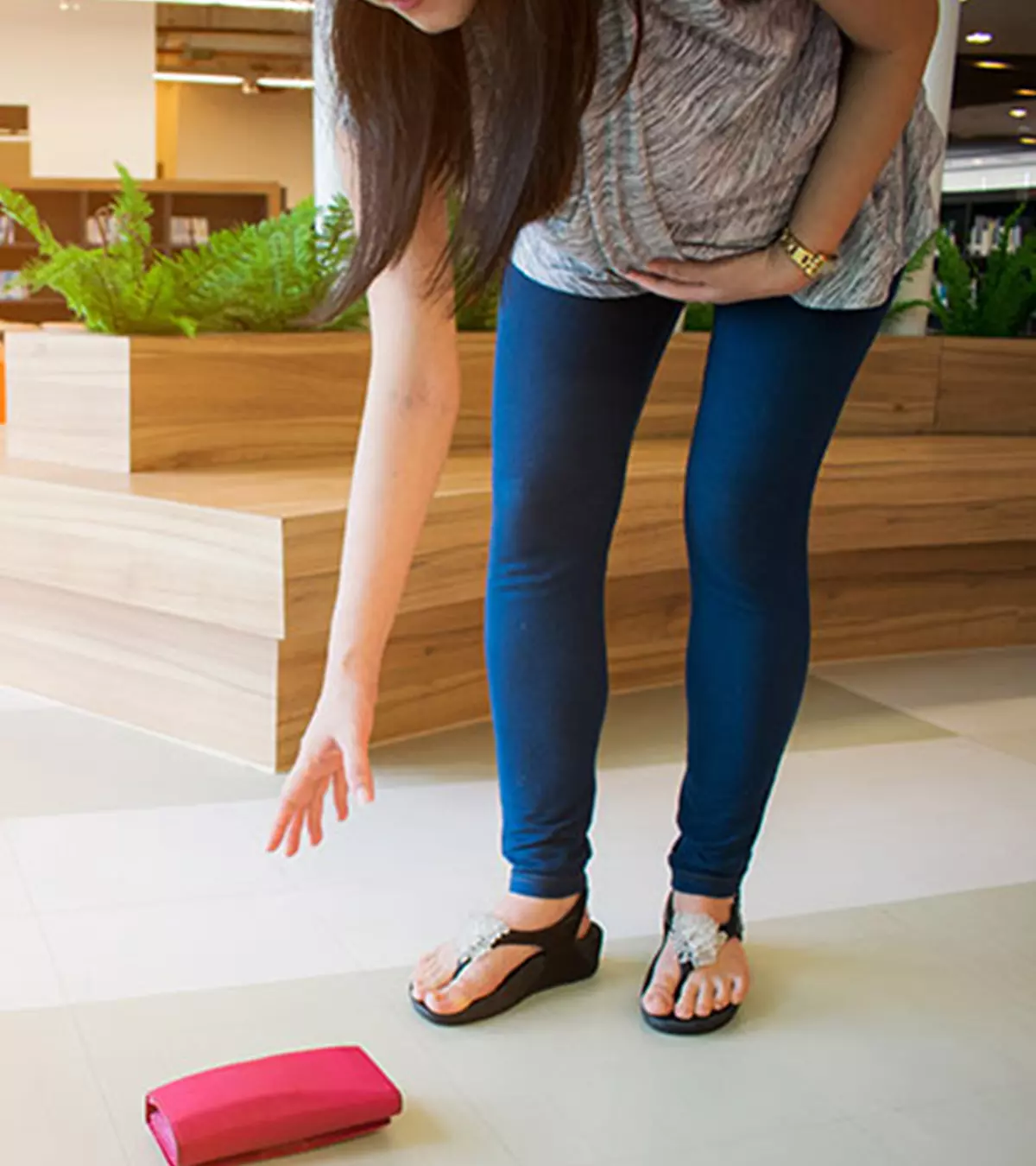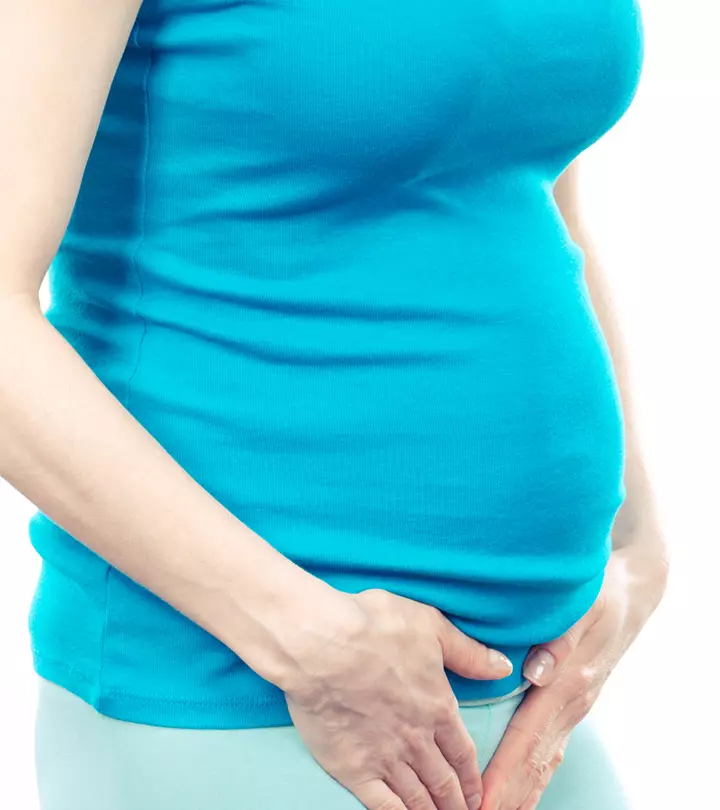
Image: iStock
Vaginal itching during pregnancy is a common discomfort most women experience. Certain infections or exposure to chemical products can trigger vaginal itching. Some women may develop other symptoms depending on the causative factors. You should contact the healthcare provider to take medications and avoid further complications.
Read on to know about the causes, symptoms, treatment, complications and preventive measures for vaginal itching during pregnancy.
Key Pointers
- Bacterial vaginosis, yeast infection, vaginal dryness, urinary tract infections, and pediculosis are causes of vaginal itching during pregnancy.
- If vaginal itching is accompanied by burning, redness in the vagina, change in vaginal discharge color, swollen vagina, or bleeding, talk to a doctor promptly.
- The treatment for the itching depends on its cause and the severity of accompanying symptoms.
- No treatment or delay in treatment could cause complications, such as low birth weight or preterm babies.
- Avoiding cosmetic products like vaginal sprays, abstaining from douching, and wearing cotton underwear can help prevent vaginal itching during pregnancy.
Symptoms Of Vaginal Itching During Pregnancy

Image: Shutterstock
The symptoms of vaginal itching may vary depending on the underlying cause. If the vaginal itching is due to an infection, the following symptoms might be prominent (1), (2), (3), (4):
- Change in vaginal discharge color is a sign of bacteria or yeast infection during pregnancy. The vaginal discharge is clear or milky white with no apparent smell. A white or opaque grayish discharge indicates bacterial or yeast infection. The discharge might turn yellow or green during heavy vaginal discharge during pregnancy.
- Itching, burning, redness in the vagina.
- Unpleasant smell in the vagina, especially after intercourse.
- Pain while peeing or during intercourse.
- Recurring urinary tract infections.
- Abdominal discomfort and weakness.
Causes Of Vaginal Itching During Pregnancy
Some possible causes of an itchy vagina during pregnancy are:
1. Bacterial vaginosis
A healthy vagina houses a colony of healthy bacteria. However, there is an imbalance between good bacteria and pathogenic microbesiOrganisms like bacteria, fungi, or viruses that can spread diseases and infections during pregnancy, leading to bacterial vaginosis (2). It therefore makes you prone to acquiring sexually transmitted infections (STIs) such as trichomoniasis during the infection period.
 Things to know
Things to know2. Yeast infection
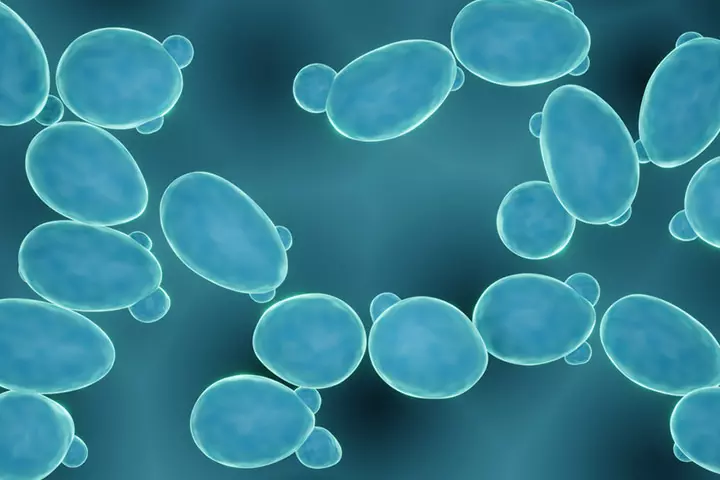
Image: Shutterstock
During pregnancy, hormonal changes favor yeast growth in the vagina (3). Candida species cause the condition called Vulvovaginal candidiasis (5). Approximately 8% of women in their reproductive years experience recurrent candidal vulvovaginitis, according to the National Institutes of Health (NIH). The yeast, which is already housed in the body, can increase and cause vaginal itching. It occurs in nearly one million women across the US and is frequent during pregnancy.
3. Increase in vaginal discharge
Vaginal discharge typically increases during pregnancy (6), and might turn sticky, jelly-like pink mucus towards the end of the pregnancy. The increase in vaginal discharge might also be due to a thrush infection.
4. Vaginal dryness
Vaginal dryness during pregnancy
is a temporary problem among women. It may also occur during breastfeeding, hysterectomyiA surgical procedure where a uterus is entirely or partially removed , or under certain medications (4).
5. Sensitivity to products
The vaginal skin is sensitive and is prone to allergic reaction or irritation from chemicals, vaginal sprays, douches, or spermicidaliA chemical or a substance that destroys sperm and can be used as birth control products (7). Some skin types can also be sensitive to lotions, lubricants, soaps, detergents, and fabric softeners. Regular use of over-the-counter medication can also cause vaginal irritation.
6. Urinary tract infection (UTI)

Image: Shutterstock
UTI is one of the most common forms of infection affecting women during pregnancy (8). Although vaginal itching is not commonly associated with UTI, at times, two infections can occur simultaneously. However, UTI makes it harder for a pregnant mother as it increases the chances of pregnancy complications.
7. Sexually transmitted infections (STIs)
STIs, such as chlamydia and gonorrhea, can cause vaginal itching and painful irritation. However, these conditions are treatable under timely diagnosis and medication (9).
8. Pediculosis
Pediculosis caused by crab lice can cause itching around the pubic hair (10). You can contract this infection by using public urinals and unsafe sexual intercourse.
Signs To Visit A Doctor
You may visit a health care provider or obstetrician if you are feeling uncomfortable or see any of the following symptoms of the illness (1):
- Unusual vaginal discharge of different colors, consistency, and smell
- Vaginal and burning itching sensation.
- Swelling or inflammation in the vaginal area
- Vaginal bleeding
Vaginal itching can be uncomfortable and affect sleep. Receiving timely treatment can ensure both your health and your baby’s well-being.
Treatment For Vaginal Itching During Pregnancy
When one experiences itching, the one thought that is sure to cross their mind is how do you get rid of an itchy private area during pregnancy? The treatment for intense itching depends on the diagnosis and suggestion of the doctor. It is not recommended to take over-the-counter medications for the disease during pregnancy without consulting your gynecologist. However, some treatment plans to reduce vaginal itching during pregnancy are (5), (10):
- The infection from bacterial vaginosis can go away without treatment, and in some cases, antibiotics would do.
- Use of antifungal cream and medication, such as topical azole antifungal treatment, is recommended for fungal infections. It may effectively reduce the fungal infection within seven days.
- The itching from pediculosis is treated with medication. However, it is not safe to use self-medication or lice preparations.
- Maintaining personal hygiene and regular cleaning of clothing, bedding, and towels can help prevent vaginal infections.

Image: Shutterstock
- Abstaining the use of chemical products in the vagina can help reduce vaginal itching during pregnancy.
Complications Of Vaginal Itching
Some complications involved in delayed or no treatment for vaginal itching include (11):
- Untreated bacterial vaginosis can lead to low birth weight or preterm babies.
- Vaginal infection during pregnancy can lead to severe complications, such as premature laboriIt is when labor begins before 37 weeks of pregnancy , miscarriage, or premature birth.
Ways To Prevent Vagina Itching During Pregnancy
Some of the preventive prenatal care measures to stop vaginal itching are (1), (2), (12), (13):
- Avoid douching: Douching is the process of cleaning the vagina using a medicated liquid or a stream of water. The practice of douching during pregnancy can increase the chances of infection and other complications during pregnancy.
- Practice monogamy: Lifestyle changes such as practicing single partner relationships can reduce the risk of STIs.
- Use latex condoms: Following safe practices, such as using condoms while having a sexual act, can help prevent vaginal infections.
- Avoid cosmetic products: Avoid using feminine cosmetic products, such as deodorants, sprays, powders, scented soap, perfumed bath products, or perfumes in the vagina or cervix. Using them could lead to a conducive environment for bacterial and yeast growth.
- Use cotton underwear: Cotton helps trap moisture and reduce unwanted bacterial growth in the private area.
- Use water-based lubricants: To prevent dryness-induced vaginal itching, use water-based lubricants during intercourse. This is one of the natural remedies you can try.
- Avoid sugars: Avoiding sugar in the diet can reduce the risk of contracting yeast infections.
- Have yogurt: Yogurt consumption can reduce the risk of recurrent vaginal yeast infections; however, there is little evidence to support this claim.
 Quick tip
Quick tip
Image: Shutterstock
Frequently Asked Questions
1. When does vaginal itching start during pregnancy?
Most women experience vaginal itching in the second trimester (14).
2. What happens if a yeast infection goes untreated while pregnant?
Yeast infections during pregnancy are common and rarely cause any problems. The infection is easy to treat; however, if left untreated, it may pass to your baby’s mouth during delivery, which is called “Thrush,” and is treated with Nystatin.
Moreover, if the infection is persistent, in rare cases, it may pass through the vagina or the blood to your baby and cause complications such as chorioamnionitisiA bacterial infection of the placenta and the membranes that surround the fetus or prematurity (14) (15).
3. Are there any home remedies that help relieve vaginal itching during pregnancy?
No, there aren’t any home remedies to relieve vaginal itching during pregnancy. However, natural prevention measures such as avoiding sugars and consuming probiotics are believed to be effective (12). Consult a doctor for timely diagnosis and prompt medical intervention.
4. Can wearing certain types of clothing contribute to vaginal itching during pregnancy?
Vaginal itching can be uncomfortable for the to-be-mother, and it is recommended to wear 100% cotton underwear (3). Wearing tight-fitting underwear made of synthetic material may increase the risk of yeast infections, and hence, it is believed best to be avoided.
To experience vaginal itching during pregnancy is common. However, if it is accompanied by vaginal discharge, swollen vagina, burning sensation, or bleeding, it might be a sign to inform your doctor immediately. Once the cause for the itching is identified, the treatment procedure is comparatively easier and will most likely be free of complications. But if left untreated, vaginal itching might increase the risks of preterm birth and miscarriage. Refraining from douching, having sex with only one partner, avoiding sugars, and consuming yogurt can help prevent this condition in pregnant women. Consult your OB-GYN if you have any questions or concerns about issues during your pregnancy.
Infographic: What May Cause Vaginal Itching In Pregnant Women?
Women may develop vaginal itching when pregnant, and it is crucial to identify the underlying cause to treat it effectively. The infographic below summarizes the causes of vaginal itching, helping you find the best remedy.

Illustration: Momjunction Design Team
Illustration: Vaginal Itching During Pregnancy: Signs Causes & Treatment
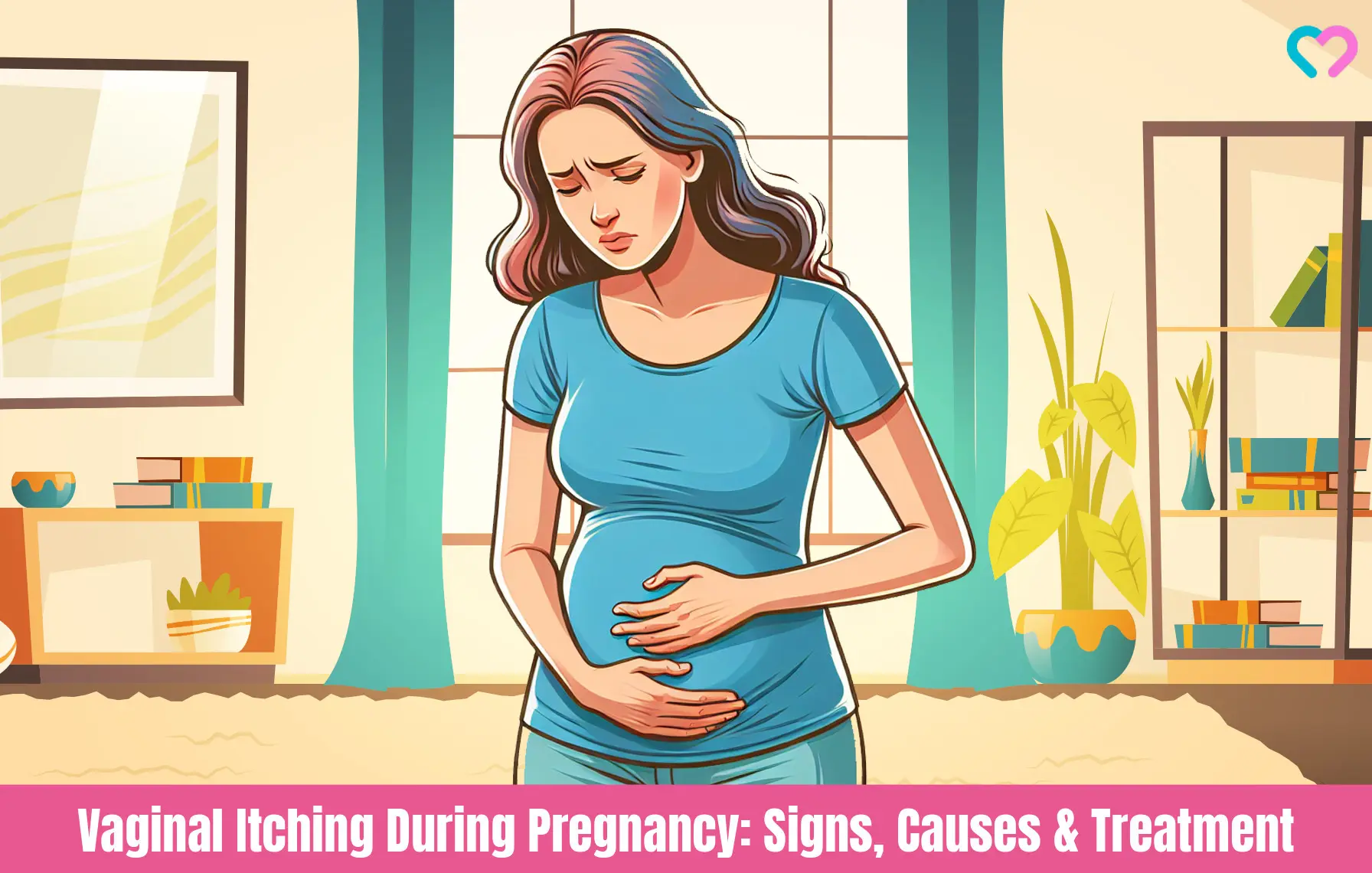
Image: Dall·E/MomJunction Design Team
References
- Vaginal discharge in pregnancy.
https://www.nhs.uk/pregnancy/related-conditions/common-symptoms/vaginal-discharge/ - Bacterial Vaginosis.
https://my.clevelandclinic.org/health/diseases/3963-bacterial-vaginosis - Yeast Infections.
https://my.clevelandclinic.org/health/diseases/5019-vaginal-yeast-infection - Vaginal dryness.
https://www.nhs.uk/conditions/vaginal-dryness/ - Vaginal yeast infections during pregnancy.
https://www.ncbi.nlm.nih.gov/pmc/articles/PMC2654841/ - Vaginal discharge in pregnancy.
https://www.nhs.uk/pregnancy/related-conditions/common-symptoms/vaginal-discharge/ - Vaginitis.
https://my.clevelandclinic.org/health/diseases/9131-vaginitis - Urinary tract infections (UTIs) during pregnancy.
https://www.pregnancybirthbaby.org.au/urinary-tract-infections-utis-during-pregnancy - What could be causing my vagina to itch and a burning sensation when I urinate?
https://familydoctor.org/common-sexually-transmitted-infections-stis/ - Why Does Your Vagina Itch in Pregnancy? How to Cope?
https://www.newkidscenter.org/Vaginal-Itch-During-Pregnancy.html - Vaginal Yeast Infections.
https://www.uofmhealth.org/health-library/hw61044 - Vaginal yeast infection (thrush): Overview.
https://www.ncbi.nlm.nih.gov/books/NBK543220/ - True or False: Eating Yogurt Can Help Reduce Your Risk of Vaginal Yeast Infections.
https://winchesterhospital.org/health-library/article?id=157013 - Yeast Infections During Pregnancy.
https://americanpregnancy.org/healthy-pregnancy/pregnancy-complications/yeast-infections-during-pregnancy/ - Yeast Infections During Pregnancy | Complications of Untreated Infection.
https://www.birthinjuryhelpcenter.org/birth-injuries/prenatal-problems/yeast-infections/ - J. Culhane et al.; Maternal Stress is Associated With Bacterial Vaginosis in Human Pregnancy
https://www.semanticscholar.org/paper/Maternal-Stress-is-Associated-With-Bacterial-in-Culhane-Rauh/004319c5674398b912bf2bfe26e1d3909b6f41d4 - Vaginal thrush during pregnancy
https://www.pregnancybirthbaby.org.au/vaginal-thrush-during-pregnancy
Community Experiences
Join the conversation and become a part of our nurturing community! Share your stories, experiences, and insights to connect with fellow parents.
Read full bio of Dr. Niraj Krishnamurthy Yanamandra
Read full bio of Anshuman Mohapatra
Read full bio of Rebecca Malachi
Read full bio of Dr. Joyani Das










